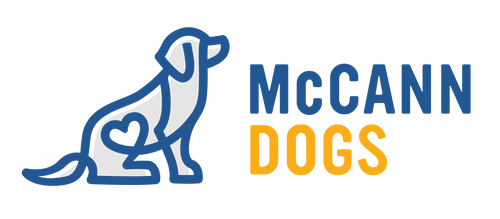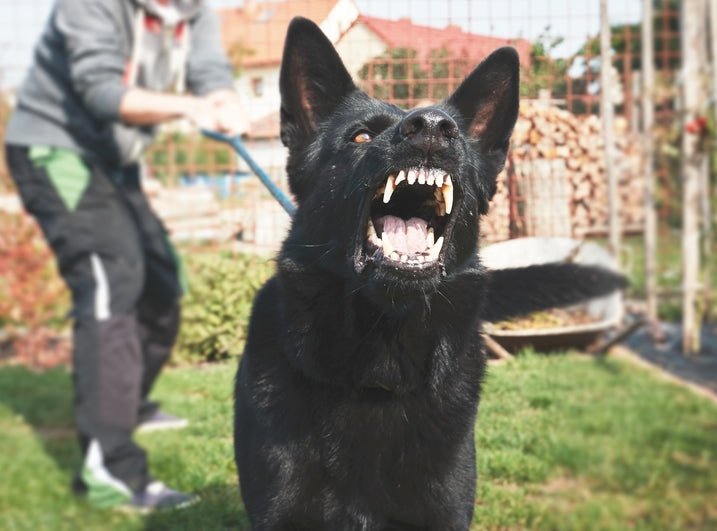Life would be lovely if all dogs were secure & trusting. It would be wonderful if every dog was friendly and no dog ever displayed aggression towards people, dogs or anything else for that matter. That's not reality and never will be.
Dogs, like people, come with many different 'personalities'. Some are bold, some are happy, some are soft, some are shy... The list goes on. There will always be something to try to reprogram when it comes to a dog and whether it is a skill to do with training or behaviour, the first step you should ALWAYS take is to stop rehearsals of the undesirable thing.
Training VS behaviour
Training is the act of teaching a dog skills. Things like sit, down, stay, shake-a-paw, etc. are all taught through training application. We shape, lure or capture our way to a skill. Then we proof and acclimate to different environments and distractions to solidify understanding.
Behaviour refers to just that, a dog's behaviour. That means his aggression, shyness, boldness, guarding of resources, etc. Behaviour is usually an individualized program set up to slowly change the dog's emotional state from arousal or fear, to comfort.
Teaching a dog to sit will not help them stop guarding a bone or lunging at another dog anymore than teaching a child basic math will stop them from having a temper tantrum. They are completely different things and require totally different skillsets to help. While training skills like focused heeling will help with the management of a behavioural problem, it will not solve the problem itself.
The First Step for Everyone to Take
The first step toward change when dealing with either skills or aggression is to stop the dog from rehearsing the wrong thing. Rehearsal of any behaviour, desirable or not, will leave an imprint. Imprint history is what dogs use to help make decisions. The garbage tasted good last time I got into it, so I'll try again. Sitting got me a cookie, so I'll sit when I'm asked, etc. Rehearsal dictates future reactions from a dog. If you want to change their reactions, you've first got to stop them from repeating the wrong actions or things will continue to get worse.
As an example, let's say Spot is a 2 year old mix breed. He's worried about other dogs and has been for most of his life. Now that he's started to mature, he's ready to warn them off as soon as he sees them. He has started lunging and barking aggressively at any dog that comes into his field of vision. If Spot is allowed to continue this, it will strengthen the behaviour and in addition, the reaction of the other dog will contribute. In most cases, if the other dog responds aggressively, it will strengthen the behaviour, but even if the other dog turns and leaves, it's often reinforcing for Spot because, in his mind, his aggression worked to get the other dog to leave. What needs to happen is a change in Spot's emotional response to seeing another dog.
Changing an engrained behaviour takes time. There's no quick fix or magic pill. Typically, reactions like Spot's are built up over time. Spot's discomfort may have started as a pup. He may have shown subtle signs of it when interacting with or seeing other dogs, but they may not have been enough for his human to recognize. It's always easier to try to adjust a dog's response before it's been well rehearsed, but that's not always possible. There are also situations where one-event learning occurs. For example, Spot may have been charged and scared by a dog on the trail recently and now he's become defensive. At any right, the solution, like the problem, takes time to fix - if it can be fixed. With dogs, the options are fixing or management - and often, it's a combination of both.
Fixing VS Managing
To fix the problem is to eradicate the undesirable response and replace it with a desirable one. For example, if you want your dog to stop jumping up, you might train them to sit instead. Once the dog understands that they need to sit to greet someone, the jumping up problem could be called fixed.
To manage a situation is to keep the rehearsal of the wrong behaviours to a minimum. For example, Spot's owners might turn and go the other way when they see another dog, cross the street or distract him with food. This does not address the problem, but it does stop the dog from continuing to imprint new instances.
So, if you have something you'd like to change about your dog's behaviour, your first course of action needs to be to manage the situation and stop rehearsal. A bit of planning and forethought will go a long way toward helping your dog.
Until next time,
Happy Training!


